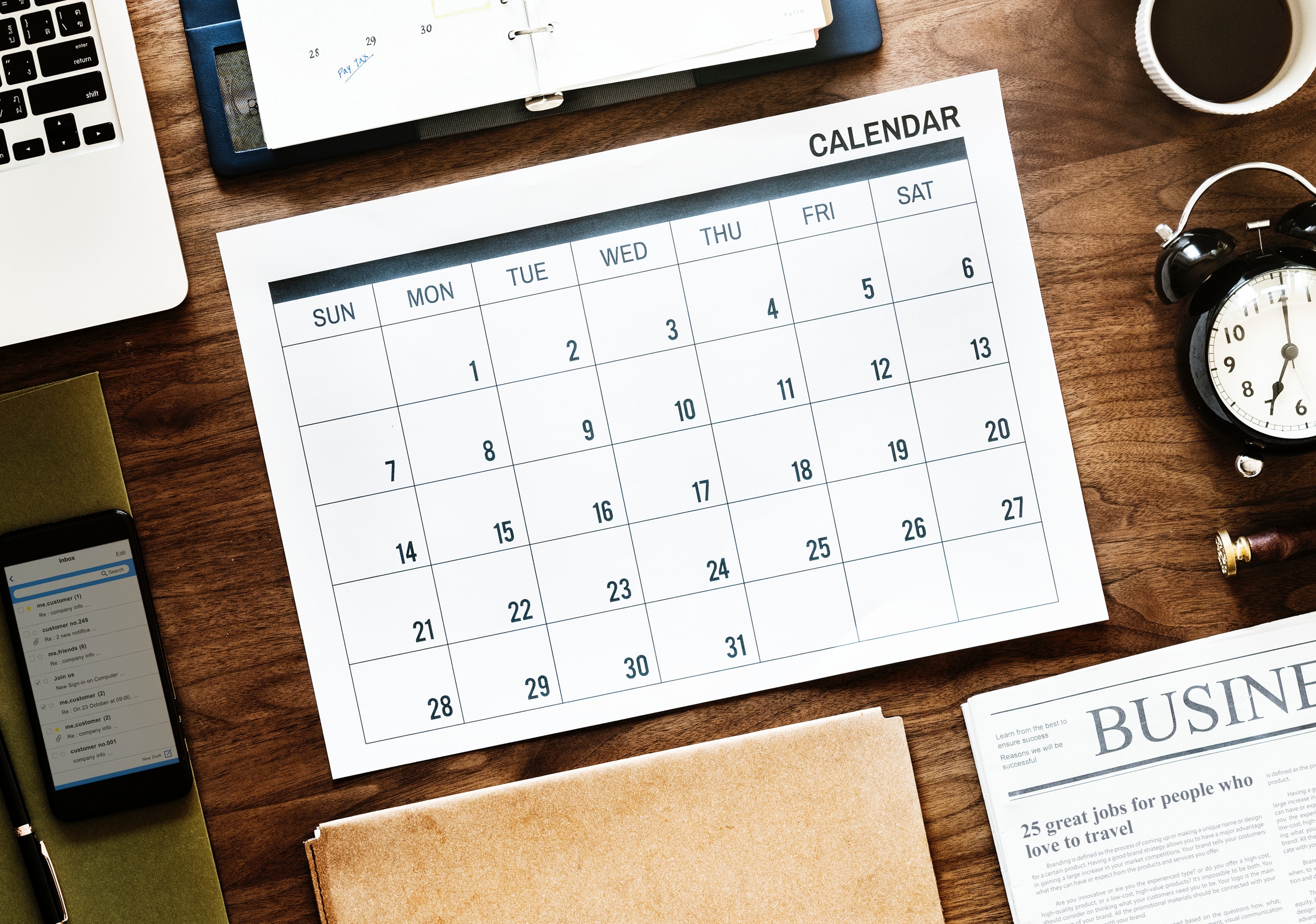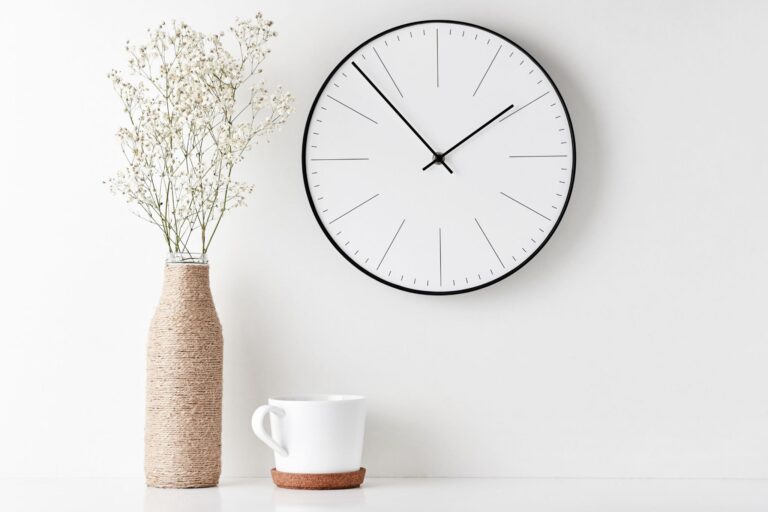How to have a more productive week

This post may contain affiliate links, which means I’ll receive a little commission if you purchase through my link at no extra cost to you. Please read the full disclosure here
Do you believe you are not being as productive with your time as you could? Here’s how to have a more productive week.
If you are reading this post, you are probably here because you believe you are not getting as much from your week as you possibly can.
With technology and discoveries that make our lives a lot easier, we still struggle with doing the things we need to.
Entertainment, with all the progress that has been made, has resulted in a bigger source of distractions competing for our time.
I understand.
I have been there and still struggle just like anyone, but I want to share with you a few tips that have helped me personally get more from my week.
By this, I mean accomplishing more rather than merely being busy.
1. Plan your week ahead
Ok, I know you’ve probably heard this a million times, and even the cheesy quote “he who fails to plan, plans to fail,” but this is a fundamental life principle that works.
Without a plan, there is no expectation.
Without expectation, just anything will do.
Starting your week without planning for it is like a traveler with no destination in mind.
Wherever he arrives would be just fine as a destination unless the plan is to go wherever the wind takes him.
Learn how to have a more productive week by learning to plan for the week before it begins.
Why should you plan?
Planning increases your motivation to get things done
Having a list of tasks and goals you want to achieve and a timeframe set for them gives you a little bit of that deadline pressure.
Parkinson’s law states that “work expands so as to fill the time available for its completion.”
Having a plan and deadline for your tasks gives you an expectation of when those tasks need to be completed.
This would also decrease your chances of procrastinating and pushing things off.
Planning is a great way to form new habits
Sometimes we struggle to do things that are beneficial for us simply because they are not habitual.
If you are making an effort to develop good and productive habits, you will need to include them in your plan.
Set the appropriate amount of time for you to practice these disciplines regularly.
Planning helps you stay accountable to yourself
When you have a plan set up for your day or week, it points out your patterns and habits that would be hard to ignore.
If you make plans and keep not achieving them, it means you are doing something wrong that needs to be addressed.
It could be that you need to allocate your time better or that you are very distracted.
Having a plan is a constant reminder of your patterns and behavior towards your tasks which could easily be overlooked or ignored if you don’t make them.
Planning helps you be more prepared
A detailed plan about what you want to accomplish would prompt you to look up all you need and the requirements for achieving those tasks.
With that, you can look for answers and find all the resources available to you.
You can figure out how difficult it is and how much help you need to accomplish this task.
You can also figure out if it would be best to do it yourself or delegate it to someone else better capable of taking on the task.
2. Start the week with a tidy space
When starting a new week, I recommend making an effort to begin the week with a fresh, clean space.
This is important if you want to have a more productive week.
Finding a suitable time during your weekend to clean will make it easier to start the week with a clean space.
Here’s why you should clean your space before the week begins and some benefits of a tidy space.
Cleaning your space saves you time
Cleaning your space during the weekend would save you the stress of worrying about it during the week when you are busier.
It is also easier to maintain that tidy look for the rest of the week as it would require much less time and effort to put things back after use or clean up if you make a mess.
A tidy space helps your focus and cognition
Studies have shown the connection between a tidy space and your cognition and focus.
You are more likely to focus more and perform better at your tasks if your space is clean and tidy.
The clutter can be a source of distraction and make it difficult to concentrate.
Cleaning helps you feel like you’ve got things together
The feeling of accomplishment that comes from getting your space in order is a good source of motivation.
It increases confidence in your ability to accomplish or tackle other tasks you have at hand.
On the contrary, coming back home to clutter you didn’t clear out or things you didn’t put away is a reminder of being neglectful. The disappointment in yourself may negatively affect other tasks you need to tackle.
It saves you the embarrassment when you have unexpected guests
You want your space to look some worth decent when someone has to come over impromptu.
Whether it be an emergency or not, people will always remember the state they found your place in, and that impression will be a part of your reputation.
When your place is found extremely messy, you would be coined a messy or dirty person.
Health benefits and hygiene
A clean space is one of the practices of good hygiene.
Your hygiene has a direct correlation to your health.
Being diligent with your hygiene also means that you are prioritizing your health.
And that you are doing your part to stay healthy.
3. Meal planning
Having the meals for the week planned out ahead of starting the week is a great way to set yourself up for a productive week.
It doesn’t have to be all the meals for that week; it could be just dinners.
Meal planning could include bulk preparing these meals and storing them in the refrigerator or just preparing the ingredients ahead and packing them, so it’s easier to make them when you are ready to.
Meal planning is a great practice to adopt, especially if you are busy and need to be very intentional with your time.
This post goes into detail about meal planning and how you can incorporate it into your life in a way that works for you.
4. Prioritize sleep and rest
For your body to function at its optimum, it needs to get adequate rest.
Sometimes we believe working longer and taking fewer breaks means accomplishing more, but that is far from true.
The more tired you are, the lesser your performance.
Your cognition and assimilation are reduced.
Here are a few points to remind you of why you need to prioritize sleep.
Sleep boosts your concentration and productivity
Having an adequate amount of sleep each night increases your concentration and ability to get more tasks done.
Proper sleep increases your cognition and helps your brain function in its optimal condition.
Sleep increases your problem-solving skill, your focus, and your memory.
This makes us better equipped to handle different tasks that come our way.
It decreases your risk for high blood pressure
Sleep deprivation has been linked to an increased risk of heart diseases such as high blood pressure.
Most people only focus on the risks that come from a poor diet and neglect the quality of their sleep.
To optimize our health the best way we can, every area that makes us susceptible to illness should be prioritized, including proper sleep.
It helps your body replenish itself
Our bodies are designed in a way that sleep rejuvenates, refreshes, and replenishes us.
A good shower and seven hours of sleep after a long day could be an excellent remedy for fatigue.
To be able to work at your best and have a very productive week, you should prioritize getting the right amount of sleep each night of the week.
And always remember that being productive doesn’t necessarily mean working longer.
You can achieve more over a shorter period if you make an effort to perform at your peak.
It is great for your mental health
Studies have linked a lack of quality sleep to an increase in the risk of depression and anxiety.
This could also explain why we feel a bit down and emotionally drained after a night of poor sleep.
Sleep is designed to rejuvenate every part of our body, including the centers that regulate our emotions and hormones.
Making sure you get adequate sleep is also a service to your mental health.
It is great for your immune system
Sleep is required to keep the immune system functioning at its best.
Our immune system fights off foreign bodies and diseases we are exposed to and keeps us healthy.
If your sleep condition is poor, you are at higher risk of coming down with an illness.
5. Reflecting on how well you are doing
It is crucial to evaluate your progress as the week progresses in relation to the plans you made for the week.
See how well you are doing.
If you are on top of things, you can keep going.
If some things will take more time than you anticipated or emergencies come up, you can always adjust the plan.
When you are planning the week ahead, I recommend you don’t make it so rigid that you are unable to make changes to it.
Factor in the fact that we can’t predict what happens in life and that it is always ok to change the plans that we have made.
The purpose of making them is to help you be productive and accountable for your time.
Evaluating your progress during the week is also the best way to get to know your abilities.
A lot of times, we overestimate how much we think we can do in a period, which a lot of times allows us to procrastinate.
Your patterns during the week will help you estimate if you’ve set a reasonable amount of time for your tasks or if you need to be a little more realistic and space them out.
6. Stay active/ exercise
Exercising has a positive effect on your productivity.
The benefits of exercise are numerous, and I’m sure you know so many of them yourself.
In addition to the benefits of weight loss and heart health, we know that exercising regularly and staying active keeps the body healthy and functioning correctly.
Some other benefits of exercise you might not be aware of are increased cognition, focus, memory, and problem-solving skills.
Exercising keeps your brain young and healthy.
It also makes you better equipped to handle the various tasks that come your way.
7. Delegate or outsource
One of the major culprits that affect our productivity is thinking or attempting to do everything ourselves.
There are a variety of reasons why people tend to want to do things by themselves.
One of them may be a lack of trust in other people’s abilities to do a good enough job or the feeling that you are giving up control.
Whatever those reasons are for you, it is essential to remind yourself that you can’t do everything by yourself, or at least you wouldn’t be able to do them all and get great results.
There are areas you are good at and areas you struggle with.
Consider delegating those tasks you find difficult to other people you know are better equipped to tackle them.
You could also outsource tasks and projects to freelancers who offer these services.
Some of the benefits of outsourcing include:
Saving time
It’s not just frustrating trying to figure out things you have little to no knowledge about; it is also time-consuming.
This also makes it hard to set a scheduled time frame for your task and complete it within that time frame.
Getting someone else to do the part you are not great at or struggle with can save you a lot of time and frustration while completing your task just in time.
You are getting the best possible result
Getting other people to help out with your projects would enable you to get the best result possible.
This is because you can get someone better than yourself in the area you are getting help.
Everyone focusing on their areas of strength would promote efficiency and ensure you are getting the best result possible.
You can practice your expertise more
When you delegate or outsource the tasks you struggle with, you get to do more of the ones you are good at or enjoy doing.
This should not discourage you from learning or trying out new skills; neither should you give up if you are struggling at the start.
We improve by going out of our comfort zone and trying things even when they make us uncomfortable at first.
Nevertheless, when we have projects and tasks that require efficiency and are time-dependent, there are benefits to getting help.
Fresh ideas
Getting help from other people would help get fresh eyes on whatever you are working on and new ideas.
Seeing things from a different perspective is sometimes what you need to get your creative juices flowing.
Other people’s perspectives or ideas can trigger even better ideas from you.
A lot of amazing creations have been made from people bouncing ideas off each other.
8. Limit distractions
A lot of dreams and goals have gone unrealized because of the distractions that stood in the way of those who had them.
The temporal pleasures of these distractions tend to keep us away from putting in the effort on goals with greater rewards in the future.
As great strides have been made with technology and other innovations, the sources of distractions have increased.
It is important to evaluate from time to time how your time is being spent if you want to have a more productive week.
If there are distractions that consume more of your time than they should and are getting in the way of you accomplishing the things you set out to do, you should make a conscious effort to get rid of them.
You should hold yourself accountable for getting the help you need to get back on track.
It requires discipline to stay on track when working towards long-term goals, but there is always a reward for hard work and staying the course in the end.
Ready to become a more productive version of yourself?
You made it to the end of the post on how to have a more productive week.
Having a productive week begins with intentional actions you put in place before the week starts.
There need to be detailed expectations for your week so you can accomplish the things you set out to do.
I hope this article has pointed out areas you can work on to have a more productive week.






